#OPEC
Gas War: Biden Admin Lifting Oil Sanctions On Venezuela
The United States is rethinking its relationship with oil producers in Venezuela and lifting sanctions. On Saturday, The Treasury Department said it would allow Chevron to produce and export oil from the region if the country agreed to restart diplomatic talks with opposition groups. The theory that U.S. leadership wants to see more oil produced to help drive down prices appears valid. But the resulting action still seems at odds with the Biden administration’s lofty environmental goals and is unlikely to move the needle on fuel pricing anytime soon.
Energy Company Warns Diesel Situation 'Rapidly Devolving'
Following news that the U.S. diesel supply has sunk below 25 days, Mansfield Energy issued an alert pertaining to shortages in the southeastern region of the country. While no direct reasons were given, the company noted that diesel reserves have been holding at historic lows throughout most of this year.
OPEC, Russia Align on Oil Production Cut
Saudi Arabia and Russia have agreed to cut oil production in a bid to drive prices higher.
Fuel Prices Are Allegedly Cooling Off
With the last several months delivering record-breaking fuel prices, as society endures what has undoubtedly been the largest spike in energy cost and inflation since the 1970s, everyone has been hoping to catch a break this summer. Some have even gotten theirs. While things are still looking exceptionally bleak in the long term, the United States appears to be enjoying a modest reprieve.
Rising Fuel Prices Have Upended the Economy
Unless you’ve spent the last twelve months locked inside your home, then you’re probably dreading the next trip to the gas station. The average price for a gallon of 87 octanes has reached $3.40 in the United States. That’s about 50 percent steeper than it was at the start of 2021 and undoubtedly more than you’re wanting to shell out today. Though one cannot ignore the dizzying rates being advertised outside of British “petroleum parlors” or France’s many “un bordel pour voitures.” Canadians are also forced to endure higher gasoline prices, as the government tends to stack the taxes a little higher and the U.S. dollar tends to be more valuable. At least for now.
All you need to know for the purposes of this article is that fuel prices are up and it’s influencing the economy in some pretty dramatic ways.
There's Little Reason to Hunt for Fresh Oil in 2020
Ever since the first major oil fields were discovered at the start of the 20th century, the world has been on a never-ending hunt to see where else black gold might be hiding. Monetizing seepage areas goes back even further. But with global oil demand having dissipated on account of the pandemic, there’s little reason to spend cash on additional procurement.
Combine that with the green movement doing everything it can to convince governments there’s only one ethical way to handle energy, and we’re likely to be moving into an era where fossil fuels sell for less but cost more to harvest/utilize thanks to carbon emission regulations.
This has left oil companies pondering the true value of seeking new sources of oil, with some having already decided there’s no point.
Your Opinion Is Now Worth More Than a Barrel of Oil
While OPEC member states and other oil-producing counties have signed a pact to stem the flow of crude by 10 million barrels a day and hopefully rein in the current price-crashing glut, the situation remains bleak for oil producers around the world. On Monday, May futures for West Texas Intermediate (WTI) dropped to the floor, with prices hitting $5 per barrel.
That number shifted into the negative* as the above paragraph was being written. We’re guessing that’s because the end of the May contract forces physical receipts at a time when storage capacities are basically nonexistent. June WTI prices are still riding just below $23 per barrel.
Meanwhile, Brent Crude is hovering around $26 bbl as the OPEC Basket hangs onto $17.73 bbl on a 4-day delay. The assumption is that both will come down, though perhaps not as dramatically as WTI did.
Get Yer Jerry Cans Out
Looking for an added dose of bad news, recently laid-off, pandemic-sheltering readers? Gas prices should be heading northward before long, now that Russia and OPEC member countries have reached a pact to curtail oil production, thus inflating the near-worthless value of a barrel of crude.
That means prices at the pumps won’t be quite as enjoyable in the coming weeks. Maybe it’s time to brave the outside world tonight and fill up that tank — and any other safe, sealable vessel you can get your hands on.
Global Oil Producers to Hold Emergency Meetings This Week
The world’s largest oil producers are meeting this week for negotiations aimed at saving the energy sector a lot of hardship further down the road. That includes the Organization of the Petroleum Exporting Countries (OPEC), which has been at odds with itself more than usual of late. Hampered by dwindling demand, member countries are suffering and aren’t sure what’s to be done about last month’s price plunge and surplus of crude.
During the cartel’s last meeting, Russia declined to collaborate with OPEC’s planned production cuts. This sent Saudi Arabia into a furious tizzy; it quickly attempted to flood the market with bargain oil in an attempt to drive out lesser players. Like everything else, this was further complicated by the global pandemic. The coronavirus has suppressed oil use to a point where suppliers are growing concerned about storage capacity running out.
OPEC Infighting and Coronavirus Adds Up to Affordable Gas
With the coronavirus keeping people indoors and shale drilling keeping U.S. oil prices relatively stable, you’ve probably noticed gasoline bills being quite reasonable of late. Well, don’t get used to the sums you’re paying now, as analysts project fuel prices will drop even lower as 2020 progresses. While you might think this is due to national quarantines and lessened demand, you’d only be half right.
Last week, the Organization of the Petroleum Exporting Countries (OPEC) failed to strike a deal that would have enacted production cuts to better stabilize the market. Instead of slashing output, Saudi Arabia started slashing prices as it sought ways to ramp up production. Russia immediately responded by promising to increase its own output, leading to what looks like an all-out price war.
Rare Rides: A Gigantic 1979 Lincoln Continental Town Car Williamsburg Edition
The end of the Seventies was a time of quiet reflection. A time where Americans pondered things like fuel prices, polyester suits, and what a large sedan should be. As the reality of automotive downsizing moved ever closer to realization, one or two of the large sedan dinosaurs had a last hurrah. Today’s Rare Ride is one such example.
It’s a 1979 Lincoln Town car; more specifically the extra-luxurious Williamsburg Edition.
Short-term Shock: Goldman Sachs Forecasts an Oil Price Spike
While the 2019 fuel forecast calls for temperate prices at the pump, Goldman Sachs claims we could be in for a brief surge this spring.
Global oil production is expected to take a sizable hit next month. Saudi Arabia, along with the rest of OPEC, has been limiting production to prop up prices. Meanwhile, Venezuela is having trouble across the board. The nation’s ongoing political crisis has resulted in a steady decline in oil production since 2013, and U.S. sanctions effectively made doing business with Venezuela’s state-owned oil company, PDVSA, an impossibility overnight.
Let's Not Forget Where the Fuel Economy Rollback Leaves Oil Companies
The Trump administration’s ongoing endeavor to replace existing fuel economy mandates with something easier on automakers is a hot topic, but the issue has more angles than a rhombicosidodecahedron. One that took a backseat during much of our coverage is where the oil industry fits into all of this. We figured it was pretty obvious because, every time we heard the word “rollback,” our minds automatically added the cash register sound effect.
Car manufacturers aggressively lobbied for more lax corporate average fuel economy (CAFE) standards since Donald Trump took office. But so has the oil industry; it just wasn’t doing so quite as openly. So what exactly does the federal government’s fuel economy rollback mean for Big Oil? Don’t act as if you didn’t already know.
Cha-ching.
Rare Rides: A 1977 Chevrolet Monza - the Malaise Mirage
Today’s Rare Ride is a special, sporty edition of a rather mundane Malaise subcompact. It hails from a time when the American customer matched the color of their vinyl seats to their wide lapel. So let’s delude ourselves for a few minutes with the Monza Mirage.
Predicting the Pump: How Much Will We Be Paying for Gas in 2018?
Fueling prices and average economy aren’t exactly the sexiest of automotive topics, but they are the two that will probably influence your life the most directly in the coming year. Expensive gas thrusted countless Americans into economy cars during the early 1980s and 2000s, so any advanced warning would be useful to those considering a new vehicle this year.
Last month, crude prices surpassed $60 per barrel after weekly American output dipped and stockpiles fell. That’s the highest they’ve been in over two-years and, with OPEC cutting production and China hungrier for the black stuff than ever before, prices aren’t expected to drop anytime soon. Does that mean you should nix purchasing that big sport utility vehicle you’ve been eyeballing and option the greener alternative?



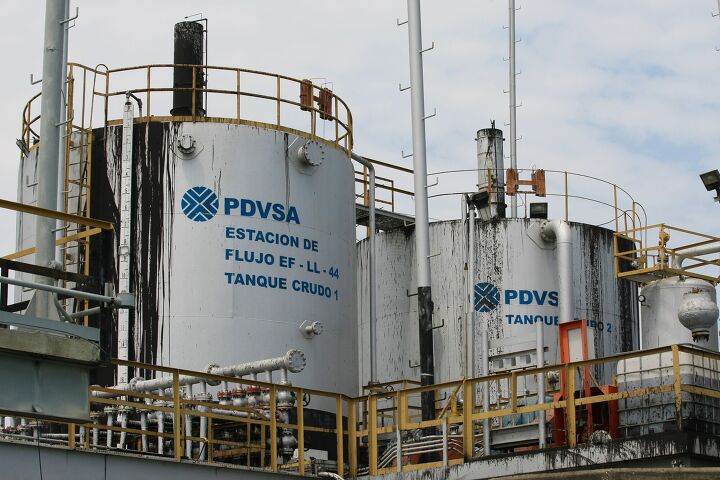
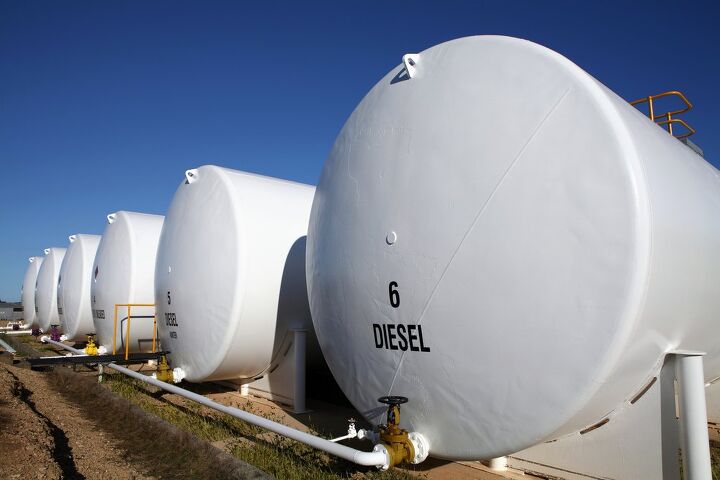


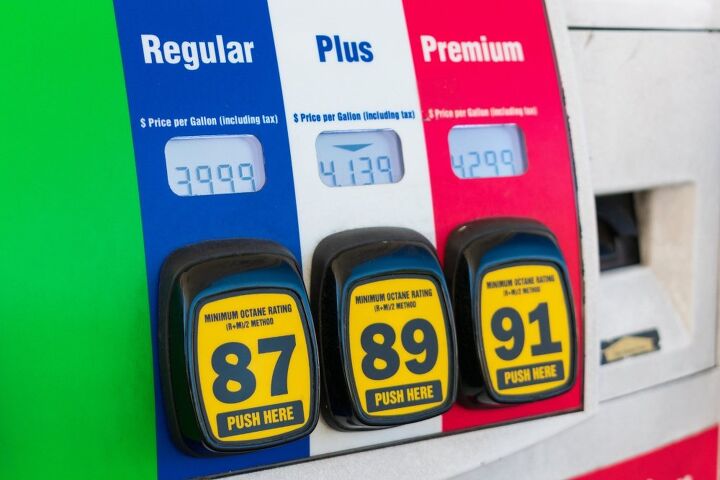



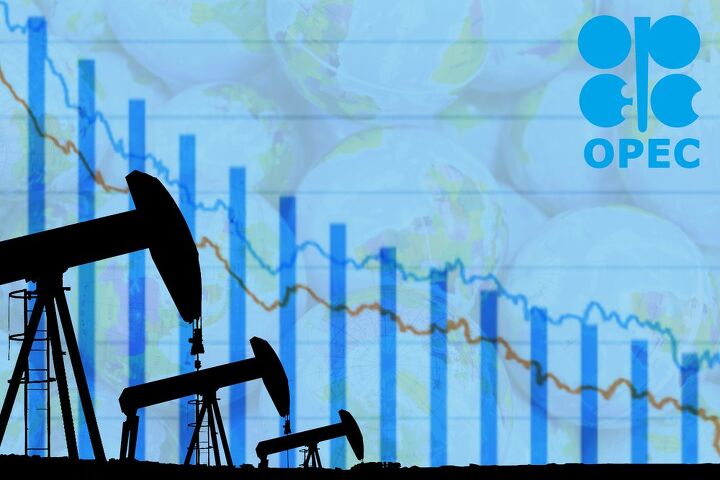


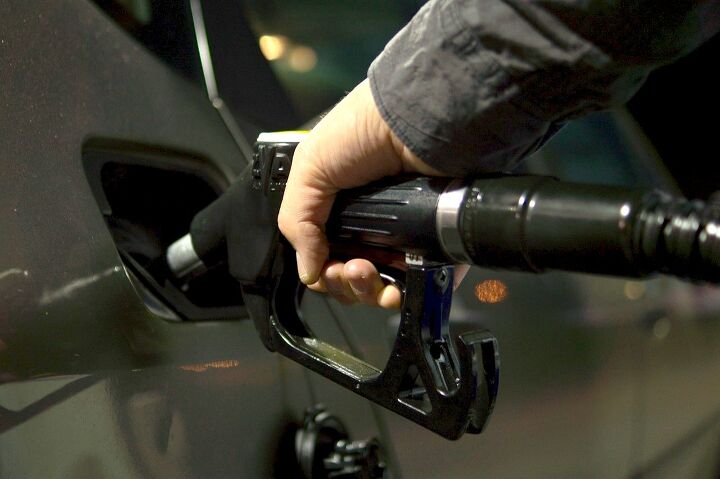














Recent Comments